.webp.webp)
Comparison of Off-Plan Projects and Ready Properties in Dubai: Investment Analysis in Dubai Real Estate
The Dubai real estate market is one of the most diverse yet complex in the region. Buyers here often face two main choices: purchasing an off-plan property (a project under construction) or a ready property (secondary market). Both paths come with their own advantages and risks, and depending on the buyer’s goal, budget, and investment horizon, they can either be a smart decision or lead to regret and unnecessary costs.
In this article, we go beyond market clichés and provide a practical, detailed analysis of these two options — covering technical definitions, legal procedures, financial criteria, construction quality, and liquidity. The goal is to help you make an informed decision that aligns with your real needs and priorities.
Whether you’re planning to live in Dubai, grow your capital, or generate rental income, choosing the right property path is the starting point of your success. Instead of a simple overview, we’ll walk you through a clear guide to help you identify the best route from the very beginning.
Which Path Suits You Best? A Quick Guide
The choice between buying off-plan or ready property is not just a matter of price or delivery time. It directly depends on your purchase goals, available liquidity, risk appetite, and even future plans for residence or exit from the market.
- If your main goal is medium- to long-term investment and you can wait until handover, off-plan purchases may bring higher returns. You benefit from lower entry prices, flexible payment plans, and potential capital appreciation by completion. However, this requires careful selection of a reputable developer and realistic project. Off-plan investments suit buyers who know the market well or work with professional advisors.
- If you want immediate move-in, instant rental income, or lower construction risk, then the secondary market (ready properties) is a better choice. You can physically inspect the property, review the title deed, and finalize the transaction within weeks. This option is ideal for those seeking quick relocation to Dubai or stable rental returns.
The key point: neither option is inherently better. The right decision depends on your personal situation, investment horizon, market knowledge, and the type of property (apartment, villa, commercial, or iconic tower).
Definitions and Key Differences
.webp.webp.webp)
Before deciding, it’s crucial to clearly understand the nature of both options:
Off-Plan Property: Buying Based on Plans
An off-plan property is a unit not yet built or still under construction. Buyers rely on plans, brochures, or show units to make their purchase. At this stage, no final title deed is issued. Instead, an initial registration called Oqood is provided by the Dubai Land Department (DLD), confirming the sales agreement with the developer.
Payments are typically made in installments tied to construction progress. Ownership of the physical property is only transferred upon completion and handover, making due diligence on the developer’s track record essential.
Ready Property (Secondary Market): Buying with a Title Deed
In contrast, ready properties are already completed and come with a Title Deed. Buyers can physically inspect the property’s condition, location, and finishing before purchase. Ownership is transferred officially through DLD within 2–4 weeks, giving buyers full legal rights immediately. Ready properties can be rented out, financed through mortgages, or resold quickly.
Legal and Registration Differences
- Off-Plan: Buyers receive an Oqood — proof of contract but not full ownership.
- Ready Property: Buyers receive the official Title Deed, registered under their name in the DLD system.
This difference impacts the ability to obtain financing, lease the property, or use it as collateral. Ready properties are legally clearer, while off-plan carries higher capital growth potential — provided the project is completed successfully.
In-Depth Comparison by Key Criteria
1. Purchase Price and Payment Structure
Off-plan units usually start at lower prices with flexible installment plans. Investors can spread payments until completion, reducing upfront capital requirements. In contrast, ready properties require full payment (or bank financing) shortly after the contract. For buyers with limited liquidity, off-plan offers greater flexibility.
2. Delivery Timeline and Usability
Ready properties can be occupied, rented, or resold immediately. Off-plan projects, however, require waiting 2–5 years until completion, with risks of construction delays or deviations from promised specifications.
3. Construction Quality and Reality Check
With ready properties, buyers can inspect the actual unit, materials, and finishing. Off-plan buyers must trust the developer’s reputation and previous work, as the final product may differ from marketing visuals.
4. Liquidity and Resale
Ready properties have higher liquidity since they come with a Title Deed. They can be sold or rented at any time. Off-plan properties usually cannot be resold until handover, except under specific conditions set by the developer.
5. Rental Returns
Ready properties can generate immediate rental income, making them attractive for investors seeking cash flow. Off-plan units only start yielding rental returns after handover, meaning an initial holding period without income.
6. Additional Costs and Fees
Both options involve legal fees, DLD registration, and agent commissions. However, developers often offer fee waivers or discounts on off-plan purchases. Ready properties, on the other hand, come with service charges from the moment of purchase.
7. Risks
- Off-Plan Risks: Construction delays, project cancellation, or deviations from promised specs.
- Ready Property Risks: Hidden maintenance issues, outstanding debts, or legal disputes.
Due diligence and professional guidance are essential in both cases.
Practical Financial Analysis
.webp.webp.webp)
A correct understanding of the financial differences between buying off-plan property and ready property can only be achieved through realistic, numerical evaluation. Financial analysis helps buyers look beyond the initial price to gain a clear picture of long-term costs, cash flow, return on investment, and the break-even point of each option.
Total Ownership Cost Over a Five-Year Horizon
In off-plan purchases, payments are usually made in installments tied to construction milestones. This reduces the initial cash burden, but it is important to note that no rental income is generated during the construction period. Additional costs such as insurance, furnishing, or potential taxes are only passed on to the buyer upon handover.
In contrast, ready properties, though requiring either full upfront payment or a mortgage, can generate rental income from day one. As a result, annual costs like service charges or municipal fees can be partially offset through rental returns, making the cash flow more positive.
Rental Break-Even Analysis
For many investors, the key metric is ROI through rental yields. In the secondary market, this is easier to calculate since both purchase price and rental rates are fixed and visible. Off-plan yields, however, can only be estimated based on projected future rents and the property’s expected market value at handover — meaning success depends heavily on future market conditions.
Example for Decision-Making:
- A ready property priced at AED 1.5M rents for AED 75K/year, giving a gross annual yield of 5%.
- A similar off-plan project in the same location might be priced at AED 1.2M, but with a three-year construction period during which no rental income is earned. The investor must then rely on the property’s market value exceeding AED 1.5M at handover to achieve a comparable return.
This simple example shows that the choice between off-plan and ready properties is not just about price. It requires an analytical perspective that considers investment horizon, risk appetite, and the buyer’s ultimate goal. Market foresight is critical for success — see also Best Areas to Invest in Dubai Real Estate 2025 for high-potential growth zones.
Financing and Mortgages for Residents and Non-Residents
Access to financing plays a decisive role for many buyers. Both UAE residents and international buyers (residents or non-residents) can obtain bank financing, but conditions, costs, and procedures differ significantly between off-plan and ready properties.
Down Payment and Installment Plans for Off-Plan Projects
In off-plan purchases, developers usually require a 10–20% down payment, with the balance paid in stages according to construction progress. Some developers also offer post-handover payment plans, allowing buyers to defer part of the cost until after delivery. This structure is attractive for buyers who wish to avoid mortgage procedures or don’t intend to occupy the unit immediately.
Mortgages for Ready Properties
In the secondary market, banks finance up to 75% of the property value for non-residents (higher for UAE residents), provided the buyer has verifiable income. The process includes property valuation, income verification, credit assessment, and mortgage registration fees. The main advantage here is the ability to start generating rental income immediately while repaying the loan. For deeper market insights, see our section on comparing Dubai with other UAE cities for property investment.
Key Financing Differences
- Off-Plan: Mortgages are usually unavailable until completion since no Title Deed exists. Some banks partner with top-tier developers to offer conditional financing, but options are limited.
- Ready Properties: With a Title Deed, buyers can secure a mortgage immediately, giving more flexibility.
Some developers also promote zero-interest or reduced-interest installment schemes in off-plan sales. However, these incentives are usually factored into the final price and should not be the sole basis for financial decision-making.
Common Costs and Fees
Property purchases in Dubai involve more than the sale price. Overlooking additional costs can distort financial forecasts.
Government and Registration Fees
Every property transaction requires payment of Dubai Land Department (DLD) registration fees, typically 4% of the property value. Some developers cover part of this fee as a promotional incentive in off-plan sales, but under standard conditions, the buyer pays it.
Other costs include Oqood or Title Deed issuance fees, initial registration, legal due diligence, and ownership transfer fees. These vary depending on property type and transaction complexity.
Agent and Trustee Fees
Real estate agents in Dubai typically charge 2–3% of the transaction value as commission, payable by the buyer or seller, and this must be stated in the sales agreement.
For off-plan deals, contracts are usually signed directly with the developer, but many still work through authorized agents whose commission is typically paid by the developer. Transparency on this point is essential.
Additionally, Trustee Offices often handle the legal registration and title transfer, charging separate service fees.
Annual Service Charges and Setup Costs
For ready properties, owners must pay annual service charges (building maintenance, security, cleaning, amenities, and community management) starting from the purchase date. These typically range between AED 10–30 per sq. ft. per year, depending on the project.
For off-plan properties, service charges apply only after handover. However, buyers must also account for setup costs such as furnishing, utility connections (water, electricity, internet), and permits required for occupancy or leasing. These should be factored into financial planning well before handover.
Legal Framework, Regulations, and Key Considerations
Dubai’s real estate market operates under a well-defined legal framework and active regulatory authorities. However, the legal differences between off-plan and secondary market transactions can be complex for new buyers. Below are the most important legal aspects that must be carefully reviewed before signing any agreement.
Escrow Accounts and Regulatory Framework
For off-plan projects, Dubai law requires developers to deposit all buyer payments into an Escrow Account. This account is regulated directly by the Dubai Land Department (DLD) and funds can only be released to the developer upon verified project progress.
The escrow system provides buyers with an important layer of legal protection against potential misuse of funds. When selecting a project, ensure it is officially registered with RERA and has an approved escrow account.
By contrast, transactions in the secondary market do not require escrow accounts. Instead, they must be carried out through authorized Trustee Offices under DLD supervision. Trustee offices are responsible for document verification, fund transfer, and title registration, ensuring the legal validity of the transaction.
Key Clauses in Sales Agreements
- Off-Plan Contracts typically include clauses covering delivery timelines, penalties for delays, unit specifications, payment milestones, cancellation/termination policies, and resale conditions. Buyers should carefully review these terms, especially warranties and dispute resolution procedures.
- Secondary Market Contracts often focus on delivery dates, outstanding mortgage or loan obligations, settlement of pending service charges, and responsibilities post-transfer. Failure to review these details can lead to legal disputes.
Regardless of transaction type, it is strongly advised that agreements be reviewed by a specialized real estate lawyer in Dubai, even when dealing with well-known developers or agents.
Assignment and Resale Before Completion
A common question in off-plan projects is whether buyers can assign or resell the property before handover. In many cases, developers allow this, subject to conditions such as partial payment of the project’s total value and official approval. Developers may also charge an assignment fee or impose restrictions on timing.
In the secondary market, resale is unrestricted, and owners may sell at any time — provided the property is not mortgaged or under legal dispute.
Understanding these rules is crucial for investors who want to plan an exit strategy in advance.
Working with a Trusted Advisor: A Safer Path
.webp.webp.webp)
Given the diversity of projects, rapid market changes, and legal complexity, working with a professional real estate advisor is not a luxury but a necessity. Whether buying off-plan or ready property, lack of legal and technical knowledge can lead to costly mistakes.
Afdal Properties, with years of expertise in Dubai real estate, offers direct access to reputable developers and updated projects. From legal checks to transparent guidance, Afdal ensures buyers enjoy a secure and informed decision-making process. Whether you’re looking for an off-plan investment or a ready home for living or rental income, working with a trusted advisor makes the journey safer and clearer.
Conclusion
The choice between off-plan and ready properties in Dubai is complex but manageable with the right knowledge.
- If you are seeking lower entry prices, flexible payment plans, and long-term growth, off-plan projects may be suitable.
- If your priority is immediate occupancy, rental income, or greater legal certainty, ready properties in the secondary market are the more logical option.
Ultimately, success depends on accurate market insights and professional guidance. For personalized, unbiased advice, you can consult Afdal’s experts to start your journey with confidence. A good decision is not based on luck, but on accurate information.
Frequently Asked Questions (FAQ)
1. Can off-plan contracts be assigned before handover?
Yes, in many projects assignment is allowed, but only with developer approval. Typically, a certain percentage of the purchase price must be paid, and a transfer fee may apply.
2. What is the difference between Oqood and Title Deed?
- Oqood is a temporary registration issued by DLD for off-plan projects, serving as proof of the purchase contract.
- Title Deed is the final ownership certificate issued once the project is completed and ownership is formally transferred.
3. When is buying a ready property the better option?
If your goal is rental income, immediate occupancy, reduced construction risks, or higher liquidity for resale, ready properties are more suitable.
4. What documents are required for property transfer?
A valid passport, the Memorandum of Understanding (MOU), proof of payments, developer’s clearance (for off-plan), and ownership documents (for secondary) are required. Final signing must be done at an official Trustee Office with applicable fees paid.
5. How does property type affect rental yield?
Studios in high-demand areas usually generate higher rental yields, while villas in prime or luxury locations may take longer to lease. Location, amenities, and property category directly influence ROI.
If you’re unsure whether renting or buying in Dubai is better for you, see our detailed article on the costs, benefits, and drawbacks of each option.





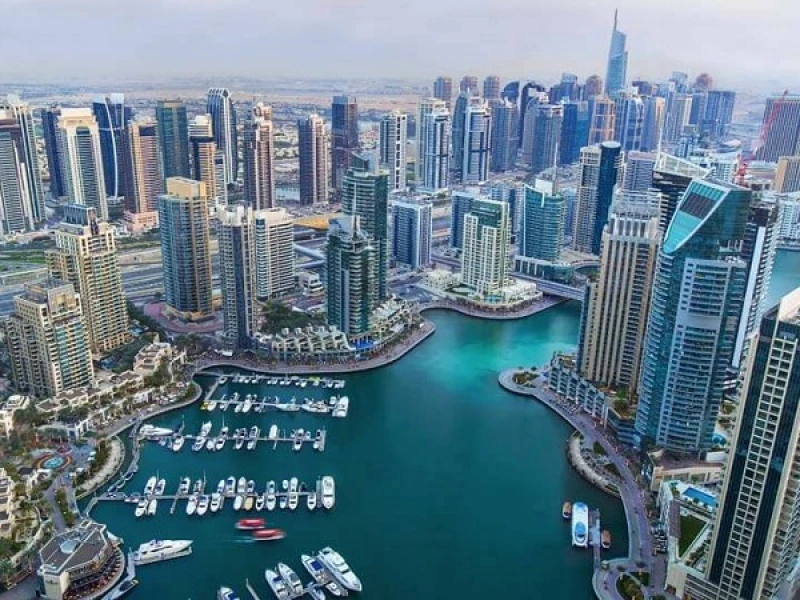
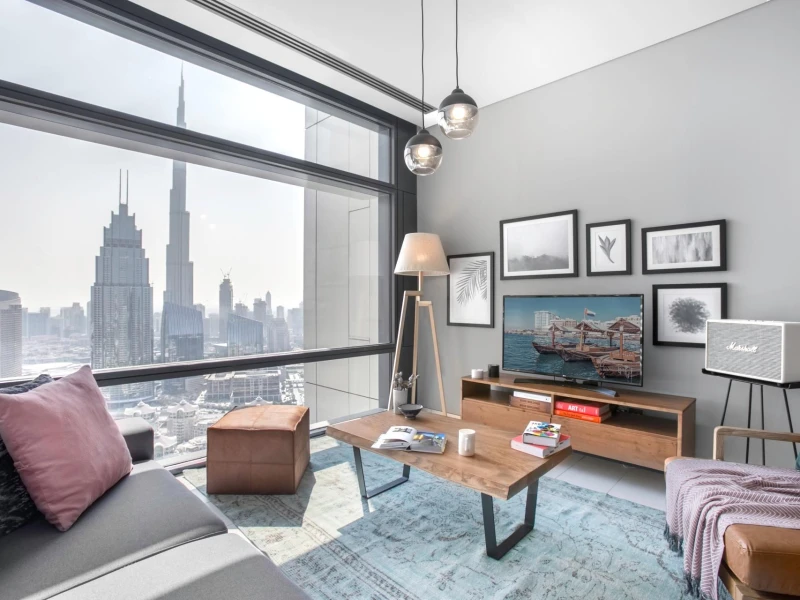
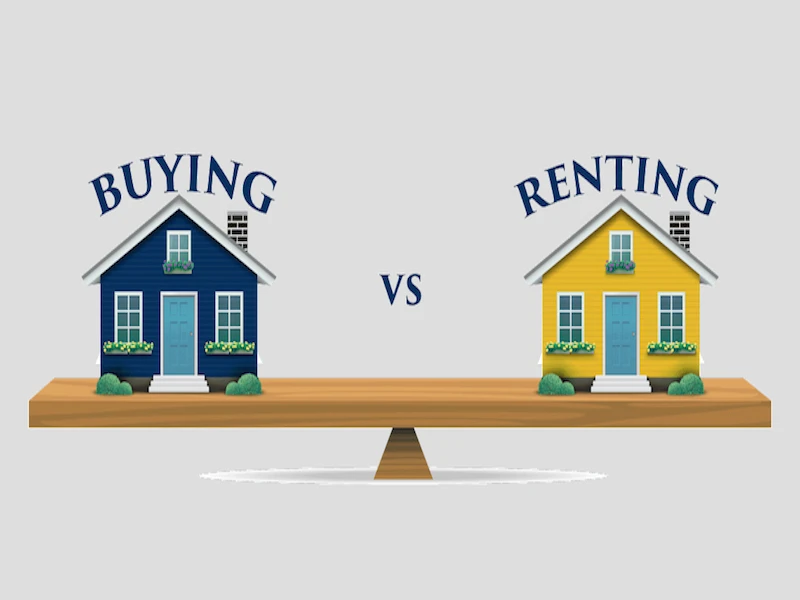
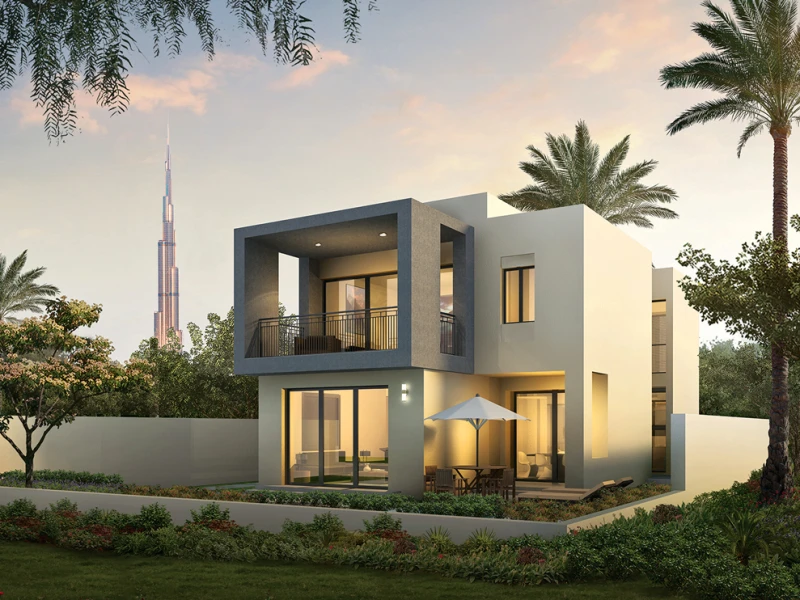

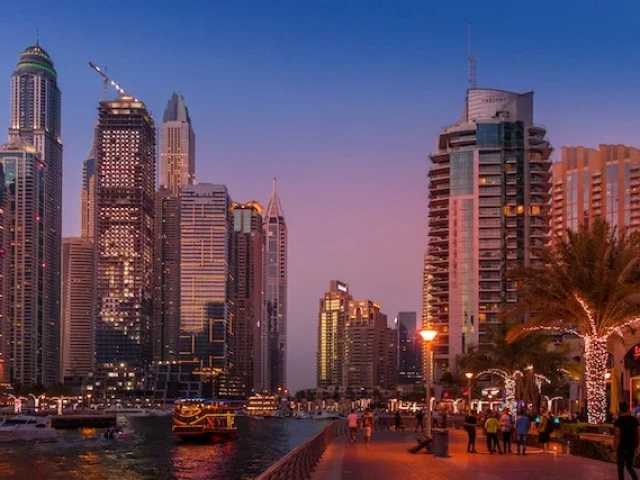
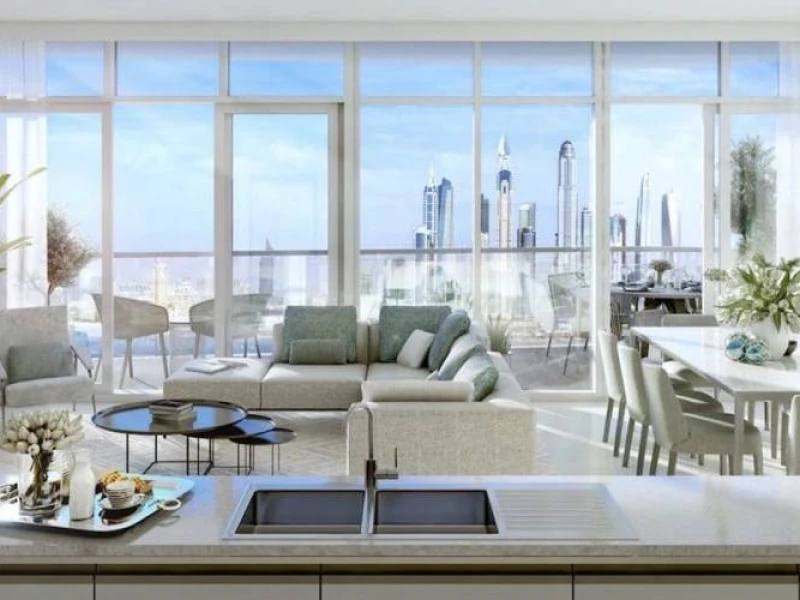



Reviews
Please submit your comment.
It will be displayed after the approval of admins.
To do this, please login first
No comment submitted yet